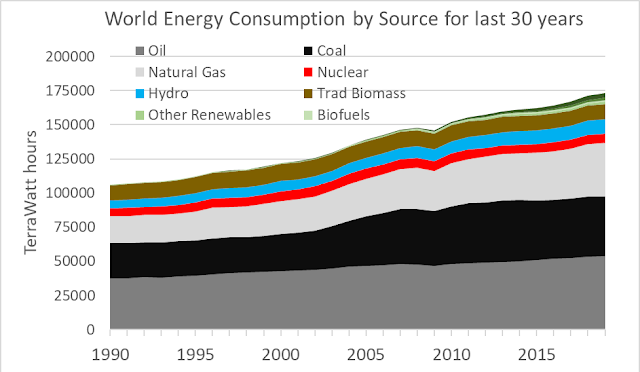August 15, 2023
The climate change faction, to which the Biden administration belongs, wants to do away with fossil fuels. But what they may not realize is that in addition to being fuel, some fossil fuels, like oil and natural gas, are basic elements in many things the American people need and want.
“Petrochemicals derived from oil and natural gas make the manufacturing of over 6,000 everyday products and high-tech devices possible,” Energy.gov tells us.
“Major petrochemicals—including ethylene, propylene, acetylene, benzene, and toluene, as well as natural gas constituents like methane, propane, and ethane—are the feedstock chemicals for the production of many of the items we use and depend on every day. Modern life relies on the availability of these products that are made in the United States and across the globe.”
Energy.gov lists 161 of the 6,000 items that are made from oil and natural gas. The list includes: artificial limbs, asphalt, aspirin, awnings, backpacks, balloons, caulking, electric blankets, electrical tape, enamel, epoxy paint, eyeglasses, fan belts, faucet washers, fertilizers, hearing aids, heart valves, house paint, ink, insect repellent, insecticides, insulation, iPad/iPhone, petroleum jelly, pharmaceuticals, plastics, life jackets, light-weight aircraft, roofing, refrigerants, vinyl flooring, vitamin capsules, tires, tool boxes, toothbrushes, toothpaste, transparent tape, water pipes, wind turbine blades, and many more.
Many of those products are valuable and useful, so the mania to end fossil fuels carries with it a heavy price in terms of replacing these items.
One of those products is plastic. Take a guess at how many things that people use, want, and depend upon are made from or contain plastic?
Plastics, however, have a down side. So many plastic products are used once or a few times and discarded. Many people try to recycle them, but that is a non-existent entity, to a large degree.
An article on the National Public Radio (NPR) website addresses this. “The vast majority of plastic that people use, and in many cases put into blue recycling bins, is headed to landfills, or worse, according to a report from Greenpeace on the state of plastic recycling in the U.S.”
The article cites a report that the amount of plastic actually recycled and used for new products has fallen to only about 5 percent, and is expected to fall even further in the future.
“Greenpeace found that no plastic — not even soda bottles, one of the most prolific items thrown into recycling bins — meets the threshold to be called "recyclable" according to standards set by the Ellen MacArthur Foundation New Plastic Economy Initiative,” the article continued. “Plastic must have a recycling rate of 30 percent to reach that standard; no plastic has ever been recycled and reused close to that rate.”
The NPR article also explained that “Waste management experts say the problem with plastic is that it is expensive to collect and sort. There are now thousands of different types of plastic, and none of them can be melted down together. Plastic also degrades after one or two uses. Greenpeace found that the more plastic is reused the more toxic it becomes.
“New plastic, on the other hand, is cheap and easy to produce. The result is that plastic trash has few markets — a reality the public has not wanted to hear,” NPR wrote.
There are tons of these un-reusable plastic items that are not really needed. Things such as packaging materials, shopping bags, straws, bottles, cups and such things were made of paper or glass prior to plastic being implemented, and we can move back in that direction. Paper and glass are much easier to recycle or dispose of than these plastic items.
So, while we need to cut back on the production of plastic items that can be replaced with materials that can be reused, or really are not needed, there are still many plastic items that we must continue to produce.
On the former point, “Environmentalists and lawmakers in some states are now pushing for legislation that bans single use plastics, and for ‘bottle bills’ which pay customers to bring back their plastic bottles,” NPR said. “The bills have led to successful recycling rates for plastic bottles in places like Oregon and Michigan, but have faced steep resistance from plastic and oil industry lobbyists.”
"The real solution is to switch to systems of reuse and refill," Lisa Ramsden, senior plastic campaigner for Greenpeace USA, said. "We are at a decision point on plastic pollution. It is time for corporations to turn off the plastic tap."
Joshua Baca, vice president of plastics for the American Chemistry Council, criticized the Greenpeace view on plastics, and added that the industry is "on the cusp of a circularity revolution" regarding plastic recycling, and is "scaling up sortation, advanced recycling, and new partnerships that enable used plastic to be remade again and again."
Throwing used plastics in oceans and landfills has created a serious problem. It makes no sense to keep producing and then throwing away plastic items that are used once or a few times, like straws, wrappers, etc. Those items could be made from recyclable materials, or be made to be reused continuously.


